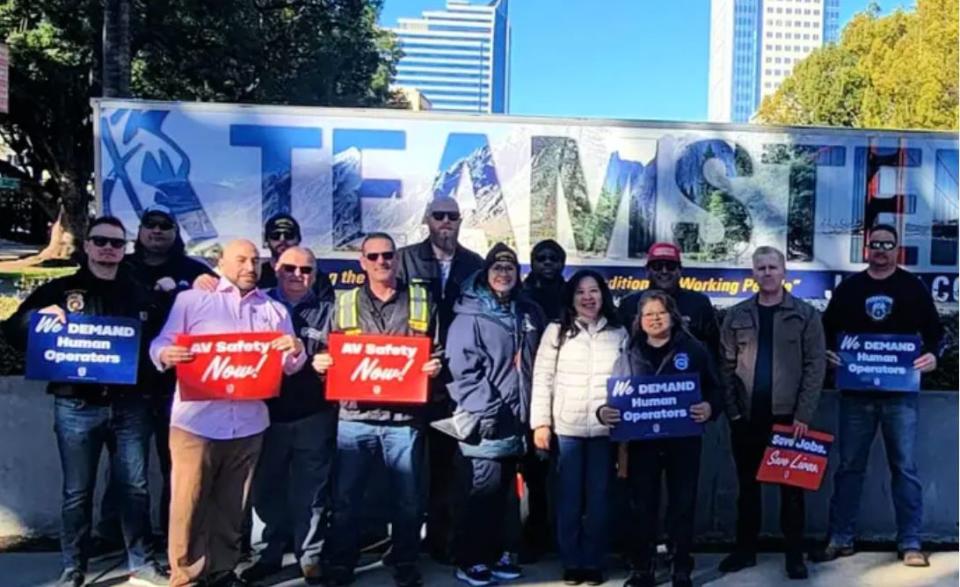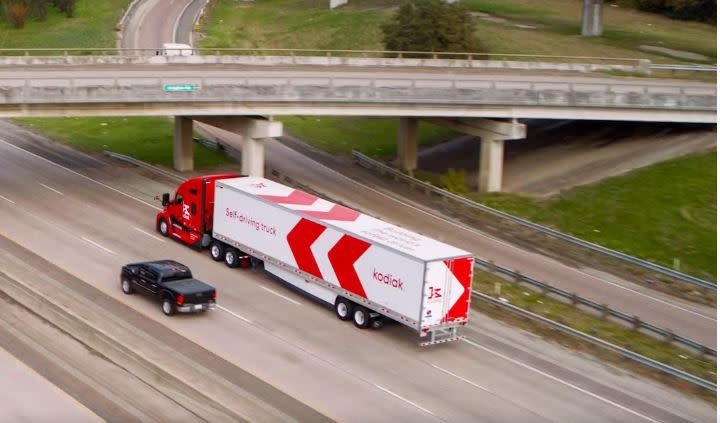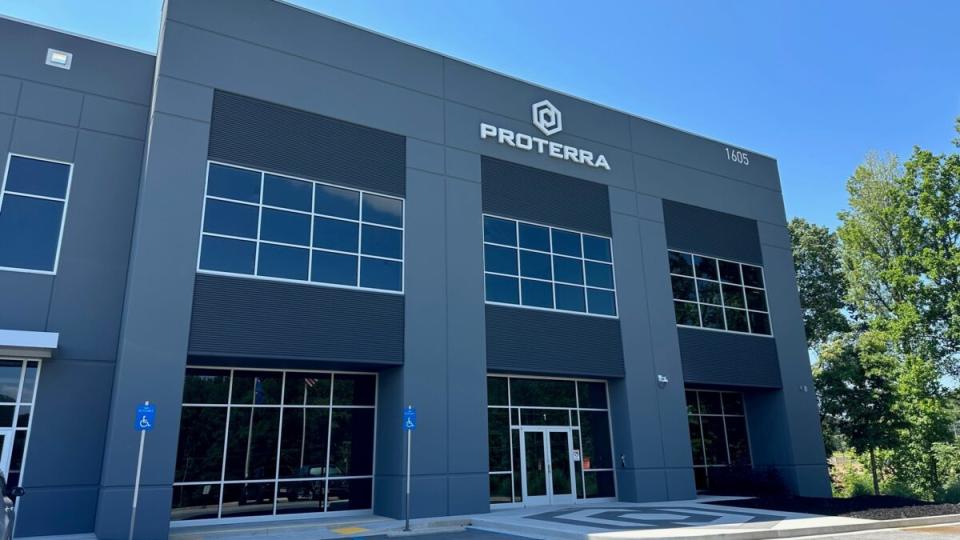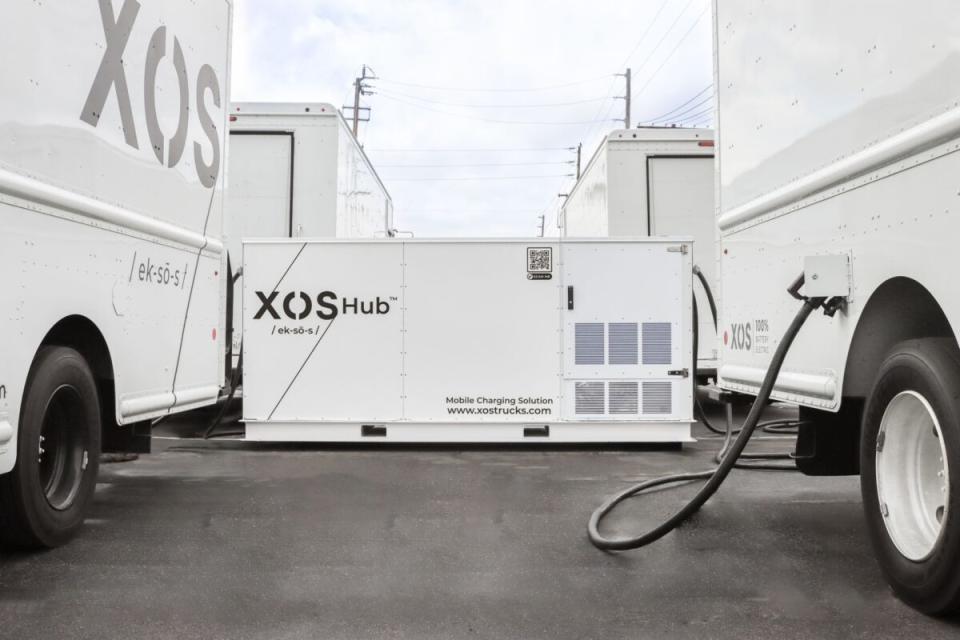The Whac-A-Mole reality of autonomous trucking regulations

If you thought last year’s veto of a Teamsters-backed ban on heavy-duty autonomous trucking in California put the issue to rest, think again. While 23 states allow at least testing of driverless trucking, emerging challenges resemble the arcade game Whac-A-Mole.
Early-stage commercialized driverless trucking on Interstate 45 in Texas looks likely later this year. The state embraced the technology in 2017. Yet a move to stop driver-out operations percolated in the Texas Legislature last year.
“That was the opportunity for the Legislature to do it, and we’re thankful that the bill didn’t move,” Jeff Farrah, executive director of the Autonomous Vehicle Industry Association (AVIA), told me.
The Texas Legislature is in an interim session, occupied by elections this year.
“So, the threat of that bill is not out there,” Farrah said.
But New York could be an issue. The clock ran out on a proposed ban in Indiana. About 90% of California legislators voted in favor of a ban last year. But it did not try to override Gov. Gavin Newsom’s veto. Yet, there is talk of taking another swing at legislation this year.
“We’ve seen some of these come back,” Farrah said. “And it’s interesting because there were eight that were introduced last year and all eight failed.”
Teamsters drill states over safety and job losses
Colorful quotes enliven Teamsters’ press releases opposing autonomy in general and driverless trucking in particular. Various elected union leaders excoriate states where autonomy-allowing legislation passes.
Take South Dakota, for example.
“Parents deserve to have a say in whether or not 80,000-pound trucks can speed by their child’s school or playground without a driver in the cab,” James Heeren, Teamsters Local 120 business agent and a former police officer, said in a news release opposing House Bill 1120 (which it called H.B. 1095).
Or consider New York, where state Sen. Pete Harckham introduced legislation that would require a safety driver to be physically present in any autonomous vehicle weighing 10,000 pounds or more. Teamsters Local 456 hosted a Jan. 5 news conference for Harckham to make the announcement, where he played the jobs card.
In New York state, one of every 27 jobs — 270,000 total — is related to trucking, according to a Harckham statement.
“The truck industry is the backbone to middle-class social mobility, but unfortunately these good-paying jobs are under attack,” he said.
Louis A. Picani, president and principal officer of Teamsters Local 456, picked up the safety argument, calling unmanned trucks “lethal weapons.”
Indiana House Bill 1022 also would have banned autonomous trucks. It died last month. But Indiana Rep. Cindy Ledbetter expects to try again in 2025.
Responding to vitriol
Farrah’s job beyond state and federal advocacy of passenger vehicle and commercial trucking automation is calmly and rationally refuting vitriol.
“The Teamsters are not safety experts,” he said. “They have a perspective on autonomous trucks and they don’t want a situation where the actual experts at departments of transportation are the ones making decisions. And that’s really unfortunate.
“The Teamsters have a misunderstanding about what the job impacts of autonomous trucks are going to be,” he said. “We’ve tried very hard to talk with them and explain our position.”
A spokesman for the Teamsters acknowledged but did not offer responses to an email with questions on the union’s positions.

Would federal guidelines make a difference?
A 50-state rule for autonomous trucking is in the early rulemaking stage. It, too, could become enmeshed in election-year politics. Driverless trucking is years or decades away from moving beyond the relatively flat and temperate Southwest.
“By implementing a national autonomous trucking policy framework, the federal government can prioritize safety, resolve confusion between states, and maintain the United States’ technological lead over foreign competitors,” Melissa Wade, AVIA chair and senior director of federal government relations for Aurora Innovation, said in an email.
Aurora plans to deploy 20 trucks without drivers in Texas later this year. Kodiak Robotics also plans a commercial launch in the state.
“Twenty-three states, including every state on the critical I-10 and I-20 corridors save California, have enacted legislation allowing for AV deployment,” said Dan Goff, Kodiak director of external affairs.
“That gives the autonomous trucking industry the regulatory framework we need to deploy across the Southern half of the U.S. That being said, trucking is necessarily an interstate business, and federal regulations would help provide regulatory certainty to the AV trucking industry and our fleet partners.”
Said Nils Jäger, president, Volvo Autonomous Solutions: “As with any transport mode, regulations are a key step in developing and maturing both the industry and the technology central to its development.”

(Photo: Kodiak Robotics)
Did competition smearing put lidar leader Hesai in a trick bag?
Ouster, a lidar maker for cars, trucks and factory robots, could not contain its glee at Chinese competitor Hesai Group being placed on a list of Chinese military companies the Defense Department cannot engage.
Long accused of smearing Hesai in Washington circles, Ouster was eager to talk about seeing its rival — arguably the leader in light-detecting radar for autonomous cars and trucks — being included.
Hesai fought back without naming Ouster. The company said its lidars are for civilian use only.
“We believe this inclusion is unjust, capricious, and meritless,” Hesai said in a news release. We do not sell our products to any military in any country, nor do we have ties of any kind to any military in any country. Hesai is a publicly traded, privately owned company with an independent corporate governance structure.”
Ouster has its own issues. It conducted a 1:10 reverse stock split in April to fend off a delisting notice from the New York Stock Exchange because its shares had fallen below the required $1 a share for more than 30 days. Ouster said it expects fourth-quarter 2023 revenue to equal or exceed the midpoint of the $23 million to $25 million guidance provided in November.
TuSimple’s exit plot thickens over attempted chip shipment
For a company trying to leave the U.S. market, TuSimple keeps running into roadblocks.
The latest, according to a four-reporter effort in The Wall Street Journal, involves possible skulduggery in shipping two dozen Nvidia semiconductor chips to Australia as a way station to China. The Commerce Department halted the shipment before it could leave California.
The autonomous trucking developer denies it was trying to ship the high-power chips to China in violation of export controls. TuSimple signed a National Security Agreement with the Committee on Foreign Investment in the U.S. (CFIUS) in 2022. It agreed to keep its U.S. and China businesses separate. TuSimple is leaving the U.S. to focus on China and Japan.
TuSimple planned to use the high-performance computing and artificial intelligence A100 chips to improve its self-driving technology for semi-trucks.
Separately, a federal judge in San Diego has restrained TuSimple from shutting down the U.S. operations, including sending any company secrets to China in violation of its CFIUS agreement.
The Journal reported that TuSimple suspended its China operations a few weeks ahead of the traditional Chinese New Year hiatus.
Separately, in a “You can’t fire me, I quit” moment, the Nasdaq on Jan. 24 warned TuSimple that it faced delisting because it was out of compliance for its sub-$1 stock price. TuSimple struck first, voluntarily giving up its seat on the exchange as part of going private.
Volvo completes purchase of Proterra battery business
Volvo Group has completed its $210 million purchase of battery-making assets from Proterra Powered, a unit of bankrupt Proterra Inc.
The Swedish truck maker acquired a development center for battery modules and packs in California and an assembly factory in Greer, South Carolina. The Proterra name will live on and it will continue to provide batteries to select customers, which Volvo did not identify.
Proterra’s customer list included Daimler Truck North America subsidiaries Freightliner Custom Chassis Corp. and Thomas Built Buses; and Nikola Corp.’s fuel cell trucks. Rewritten — read more expensive — contracts could be in the offing.
“These assets and the skills and competence of the Proterra team are a great complement to our current footprint and enables us to accelerate our battery-electric roadmap even further,” Lars Stenqvist, Volvo Group chief technology officer, said in a news release.

Briefly noted…
Daimler Truck North America delivered the first of two Freightliner eCascadias to one of its plants in Mexico for use in day-to-day plant operations.
Xos has announced a next generation of its remote charging unit called The Xos Hub, with Xcel Energy signing on for two of the units.
Xos unveiled its new mobile charging system and has an order for two units from Xcel Energy. (Photo: Xos)

Truck Tech No. 52: An outsider’s inside look at Nikola
That’s it for this week. Click here to get Truck Tech via email on Fridays. And catch the latest in major events and hear from the top players on “Truck Tech” at 3 p.m. Wednesdays on the FreightWaves YouTube channel. Your feedback and suggestions are always welcome. Write to aadler@freightwaves.com.
Oh, and it’s not too soon to be thinking about attending the Future of Supply Chain on June-4-5 in Atlanta. Special ticketing pricing here.
The post The Whac-A-Mole reality of autonomous trucking regulations appeared first on FreightWaves.
